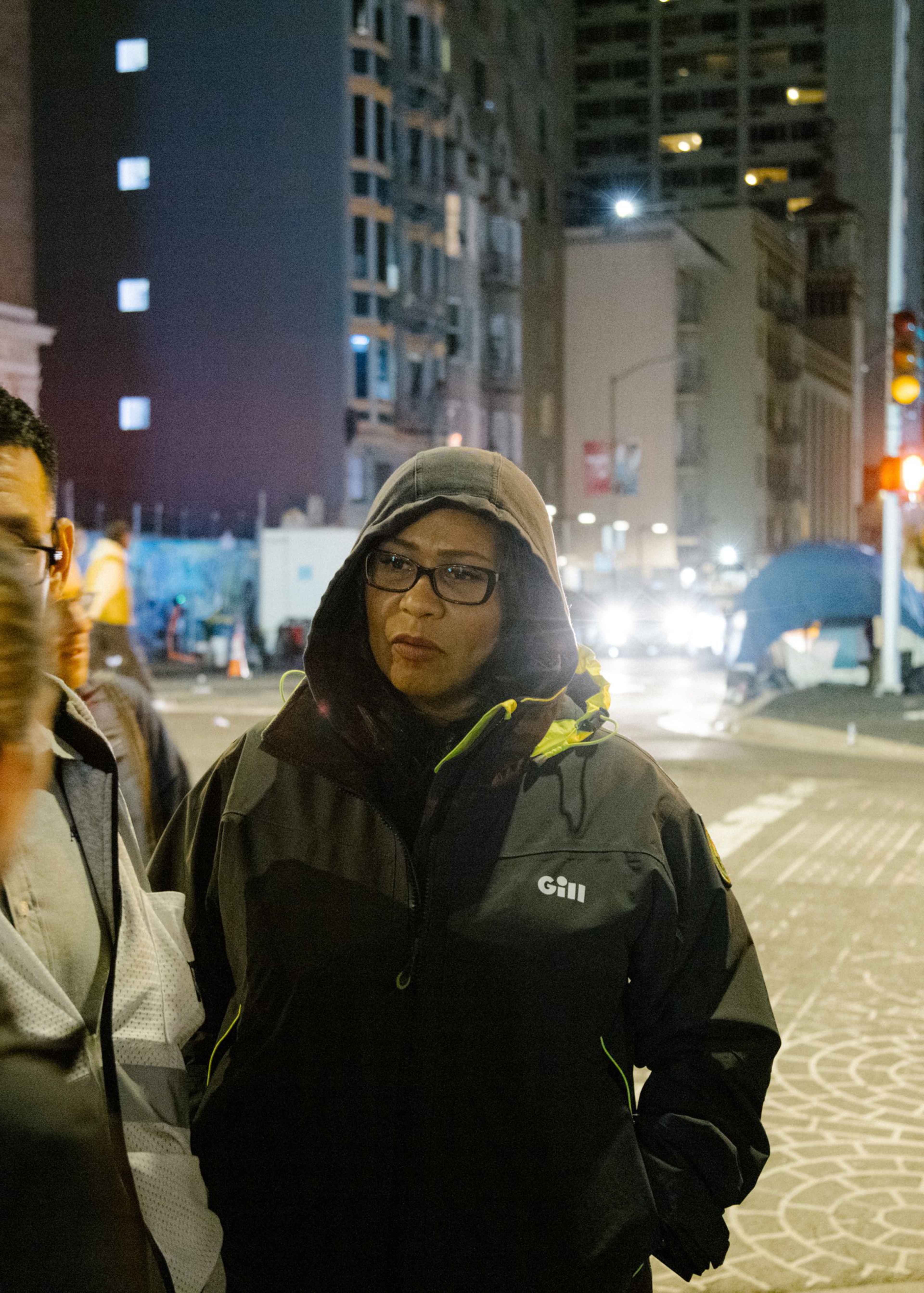As San Francisco faces pressure to get a handle on deadly drug overdoses, federal prosecutors are turning to a strategy that’s revealing a rift between the candidates vying for the mayor’s seat.
Since last year, prosecutors have charged more than 100 people, mainly undocumented immigrants, with dealing fentanyl and other illicit substances — offering defendants the choice between prison or pleading guilty and facing deportation proceedings, according to a report by Bloomberg News (opens in new tab).
Mayor London Breed is reported to be in line with the federal crackdown as she has taken a stricter stance on drug dealing and is more frequently dispatching law enforcement to troubled neighborhoods such as the Tenderloin.
More than 1,000 drug dealers were arrested between May 2023 and August 2024, according to the San Francisco Police Department, though the open-air markets appear to persist despite law enforcement intervention. Additionally, 1,500 users have been arrested.

Officials are embracing the federal strategy despite San Francisco’s long-standing policy as a sanctuary city (opens in new tab). The guidelines were put in place with the idea that undocumented individuals would be able to interact with local officials — firefighters or police — without having to worry about being detained over their immigration status. Under the sanctuary city policy, city employees are generally prohibited from communicating with Immigration and Customs Enforcement officials.
Breed, along with moderate members of the Board of Supervisors, said the city can embrace its sanctuary status — saying immigrant populations should be “protected” and “supported” — while drawing the line at the sale of deadly substances.
“For people who are willing to sell poison that is killing people, there’s no protection for you. There’s no sanctuary for you,” Breed told Bloomberg News (opens in new tab) this month. “Fentanyl is such a deadly drug. It requires that we take more extreme measures.”
But Board of Supervisors President Aaron Peskin, who has taken the progressive track in the mayoral race, swiped at Breed for “pursuing headlines rather than meaningful solutions.”
In a statement to The Standard, Peskin said law enforcement has “long agreed” that sanctuary city policies increase public safety.
“These deportations will split the community and undermine public safety without addressing the root cause of the fentanyl crisis we face,” Peskin told The Standard.

Peskin, a critic of the mayor, has previously called for outside help in addressing fentanyl; in early 2023, he asked for a wide swath of law enforcement agencies to beef up their presence in parts of the city to address the issue. As a mayoral candidate (opens in new tab), he has pushed for using opioid settlement money as a way to fund on-the-ground medical teams to help those addicted to drugs.
The debate comes as homelessness, public safety, and drugs have emerged as top-of-mind local concerns in the mayoral election. Questions around immigration, however, have mostly been reserved for national politics, as Donald Trump and Vice President Kamala Harris battle it out over border policy.
Cases pursued by federal prosecutors, led by U.S. Attorney Ismail Ramsey, include charges against a 26-year-old Honduran mother of two for selling $800 worth of fentanyl, according to Bloomberg News. In another instance, charges were brought against a 50-year-old man who had $5 worth of methamphetamine; court filings show he accepted a plea deal and is expected to be deported to Honduras. Ramsey reportedly was encouraged by both Breed and Speaker Emerita Nancy Pelosi to pursue the strategy.
Tony Brass, a former federal prosecutor who has worked on drug dealing cases, said he agrees that penalties need to be levied against undocumented immigrants who are dealing fentanyl. Without implementing consequences, the city will not be able to fight back against the scourge of fentanyl deaths, he said.
“It’s a serious crime, because there are serious consequences for the drug,” Brass said. “It’s not weed. It’s serious business. It’s deadly.”
In a statement to The Standard, the San Francisco public defender’s office described the federal tactic as “harmful and wasteful” and claimed it “skirts” sanctuary city protections. Public defenders have argued that immigrants, in some cases, are coerced into selling drugs as part of a deal with cartels to enter the country.
“Instead of scapegoating immigrants for an opioid crisis created by the pharmaceutical industry and its corporate distributors, San Francisco could be leading the way on opening overdose prevention centers to save lives and abate the demand,” the office said.
Moderate candidates in the mayoral race, including nonprofit executive Daniel Lurie and former Supervisor Mark Farrell, agreed with the federal strategy.
In a statement, Lurie said Breed has “failed to address” the city’s drug markets. “There should be no tolerance for anyone selling drugs on our street,” he said. “The tiniest amount of fentanyl can be deadly.”
Farrell similarly blamed the mayor for the condition of the city’s streets.
“Our sanctuary city policy was never meant to harbor criminals, or those pedaling death on our streets,” he wrote in a statement. “Mayor Breed has had six years to do everything in her power to make a meaningful difference on our streets, and her latest efforts are too little too late for San Francisco.”

